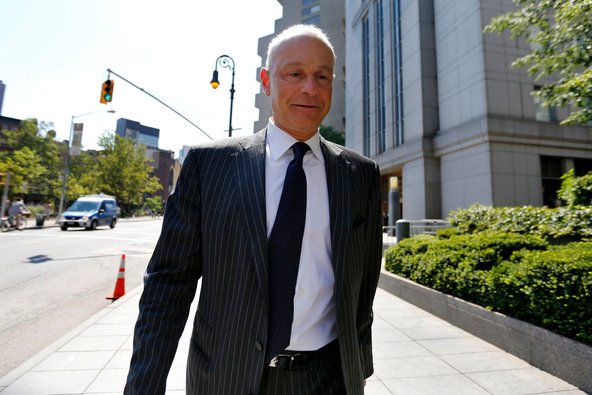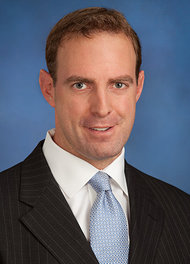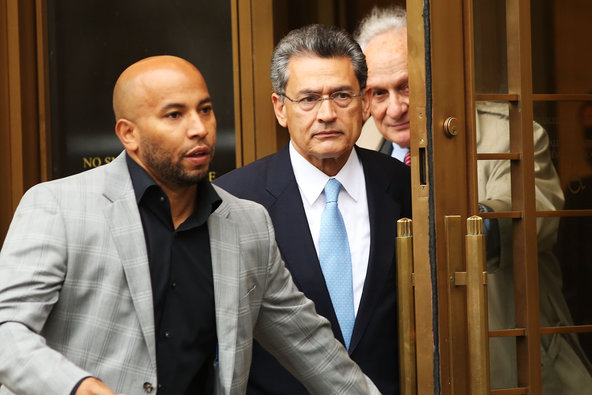Goldman on Wednesday tried to defuse complaints about waiting times and high prices at its metals warehouses across the world by offering immediate access to aluminum for end users holding metal at its Metro International Trade Services unit.
Banks that own commodity assets and trade raw materials have drawn increasing criticism in recent weeks, with federal regulators in the United States taking a look at the metals warehousing industry. Britain’s financial watchdog is also investigating the London Metal Exchange’s warehousing system.
The lawsuit outlines “anticompetitive and monopolistic behavior in the warehousing market in connection with aluminum prices,” Hong Kong Exchanges said in a statement on Sunday.
The lead plaintiff in the lawsuit, filed on Thursday in Federal District Court in Michigan, is Superior Extrusion, an end user of aluminum.
“L.M.E. management’s initial assessment is that the suit is without merit and L.M.E. will contest it vigorously,” Hong Kong Exchanges said in a statement.
Customers and American lawmakers have accused Goldman and other warehouse owners of artificially inflating waiting times to increase rents for warehouse owners and lift metal prices.
“We believe this suit is without merit and we intend to vigorously contest it,” a Goldman Sachs spokesman said. “I would also note that aluminum prices are down 40 percent from their peak in 2006,” he said.
London Metal Exchange aluminum for three-month delivery settled on Friday at $1,809 a ton.
Warehouse owners and the departing chief executive of the London market, Martin Abbott, have contended that complaints over long lines are unjustified, arguing there is no shortage of metal.

Article source: http://www.nytimes.com/2013/08/05/business/global/goldman-named-in-suit-over-aluminum-supply.html?partner=rss&emc=rss





DealBook Column: A Bank Levy in Cyprus, and Why Not to Worry
Never mind.
The last 72 hours have been filled with breathless proclamations of impending disaster after the European Union and International Monetary Fund indicated that they planned to take money directly from depositors with bank accounts in Cyprus as part of a bailout of that country.
Analysts and politicians compared the bailout plan, the first to include a levy on deposits that were considered to be insured, to government-sponsored larceny, and said it would cause a run on banks across Europe, if not a full-fledged global crisis.
DealBook Column
View all posts
Related Links
“The very nature of banking has been shaken to its roots with this decision, for banking depends upon trust,” Dennis Gartman, the investor, wrote in a note to his clients. “Trust that has now been shattered; torn asunder, broken … destroyed.”
Jim O’Neill, chairman of Goldman Sachs Asset Management, called the decision an “astonishing move” with “little thought of contagion to the rest of the euro zone, and indeed perhaps the world.”
Mark J. Grant, a market commentator who has been predicting an economic apocalypse in Europe for years, went so far as to compare the terms of the bailout with “rape.” He said: “Pay attention please. The European Union and the European Central Bank and the I.M.F. have just advocated the confiscation of private property for their own indulgence.”
Even President Vladimir Putin of Russia got into the debate, given that much of the deposits in Cypriot banks are Russian. “Mr. Putin said that such a decision, if adopted, would be unfair, unprofessional and dangerous,” a spokesman said.
And yet here we are. And, well, nothing bad has happened.
There have been no re-enactments of “It’s a Wonderful Life,” with people lined up around banks in Italy or Spain — considered the next dominoes, if you believe the doomsayers. The stock markets in Europe dropped less than 1 percent. In the United States, investors shrugged their shoulders, too.
Why?
While the bailout of Cyprus is a fascinating case study and raises interesting theoretical questions about moral hazard for policy wonks and talking heads, here is the reality: It is largely irrelevant to the global economy. Cyprus is tiny; its economy is smaller than Vermont’s. And the bailout is worth a paltry $13 billion, the equivalent of pocket lint for those in the bailout game.
Even the larger issue about bailing out a country by taking money from depositors — which quickly created outrage around the world — seems overblown.
The worry is that the European Union and I.M.F. have created a dangerous precedent by making depositors share in the pain of the bailout. Historically, the goal of bailouts has been to raise confidence in banks so depositors don’t flee. The approach in Cyprus is at odds with that notion, raising questions about whether future bailouts in countries like Spain and Italy — if they are needed — could affect depositors.
The alarmist thinking is that depositors will move their money from troubled banks, creating a death spiral.
Even in the United States, some commentators used the Cyprus bailout as a scare tactic about what they speculated could eventually happen here.
“An executive order issued by the president to debit taxpayer bank accounts during a future financial emergency is entirely possible,” Andrew Gause, author of “The Secret World of Money,” said in a news release.
But, in truth, the smart money knows that the bailout of Cyprus says very little about future actions.
“I would assume that anyone in Spain, Portugal or elsewhere who knows about the taxation of Cypriot depositors also would know that the Cypriot banking system is a very different animal than anywhere else in the euro zone,” Erik Nielsen, chief economist at UniCredit, wrote in a note to clients.
Mr. O’Neill of Goldman also acknowledged: “I am sure it will not set a precedent.”
Cyprus is unique. Besides being tiny, its banking system looks different from those in most other countries. Much of the big money deposited in its banks is from foreign investors, including Russians who have long been suspected of money laundering. Those investors had fair warning that Cypriot banks were troubled. The issue has been simmering for six months. But those investors left their money in the bank, in part because they were gambling that the banks would be bailed out at no cost to them. If the current plan is approved, depositors will have lost that bet.
Worse, the strategy employed in the bailout of Greece — in which bondholders of its sovereign debt were paid less than face value — will not work in Cyprus. Cyprus’s banks own much of the country’s debt, so any effort to reduce that debt by forcing debt holders to accept less would only make the banks more troubled.
Given the brutal history between Russia and so much of Europe — and speculation that so much of the money is ill gotten — it is clear why it would be so politically unpalatable to countries in the euro zone, Germany in particular, to bail out Russian depositors. And even if the move were to create a run on the banks in Cyprus, the contagion would be limited.
There is very little chance that politicians would ever choose to use the model they developed in Cyprus in a country like Italy or Spain, where a run on the banks would have such profound implications. By the way, if you’re wondering why investors left so much money in troubled Cypriot banks, here’s a trivia question: Would you have been better off leaving your money in a bank in the United States or in Cyprus over the last five years?
The answer: You would have been better off in Cyprus, even after the bailout, when your money was “confiscated.” If you had 100,000 euros in a Cypriot bank account over the last five years, where the interest rate has averaged about 5 percent, you would have about 127,600 euros today. Even after the bailout, which would require you to give up 10 percent of your deposit — 12,760 euros — you would be left with 114,840 euros. The American bank? The $100,000 you deposited at Bank of America five years ago is about $105,100, at the going rate of about 1 percent interest a year.
Article source: http://dealbook.nytimes.com/2013/03/18/a-bank-levy-in-cyprus-and-why/?partner=rss&emc=rss